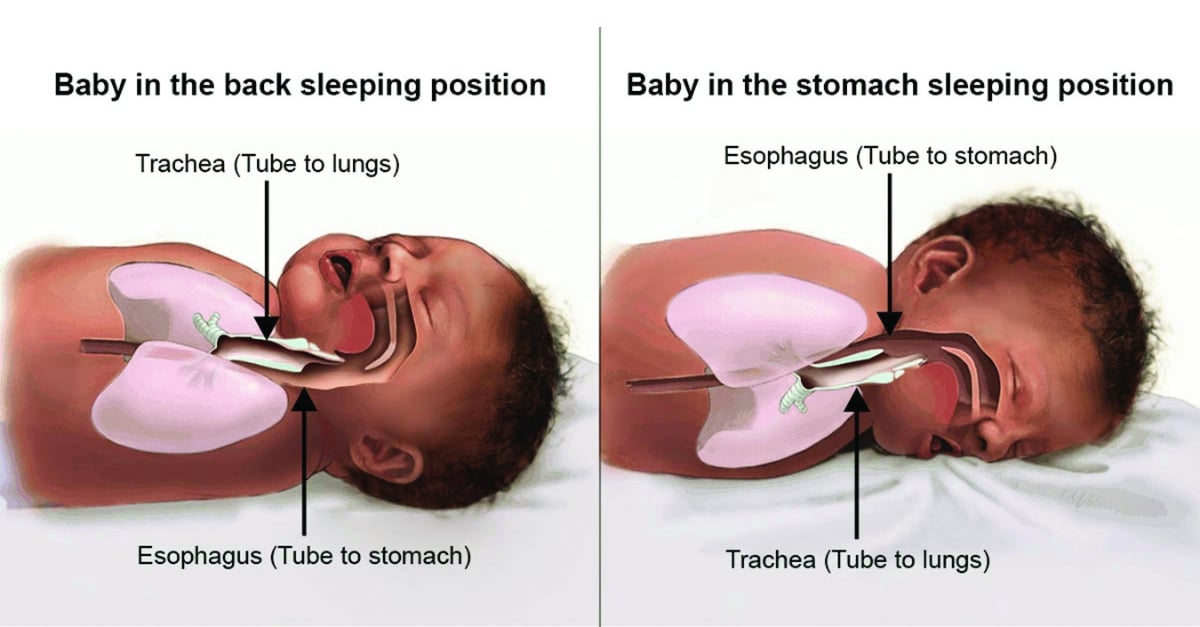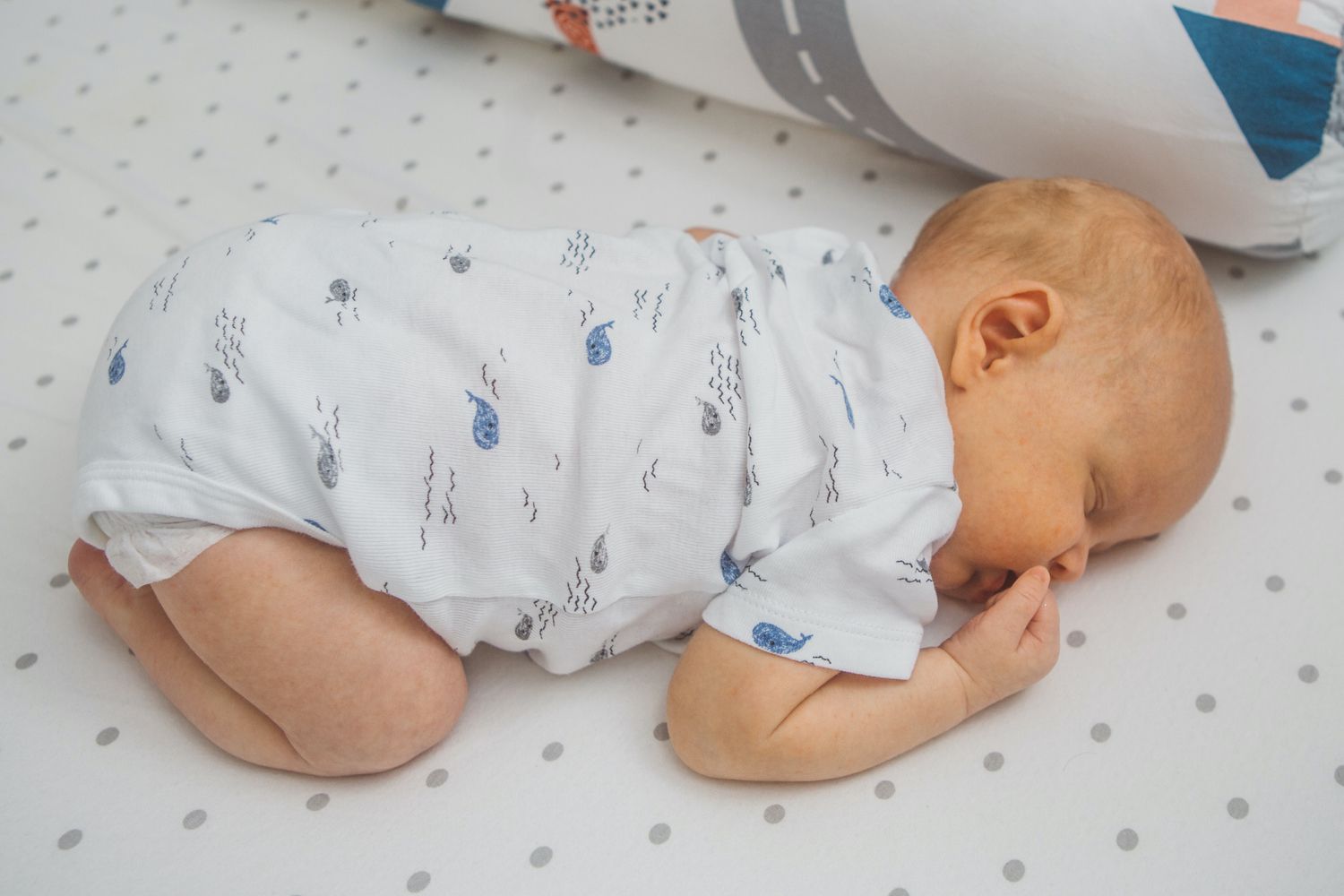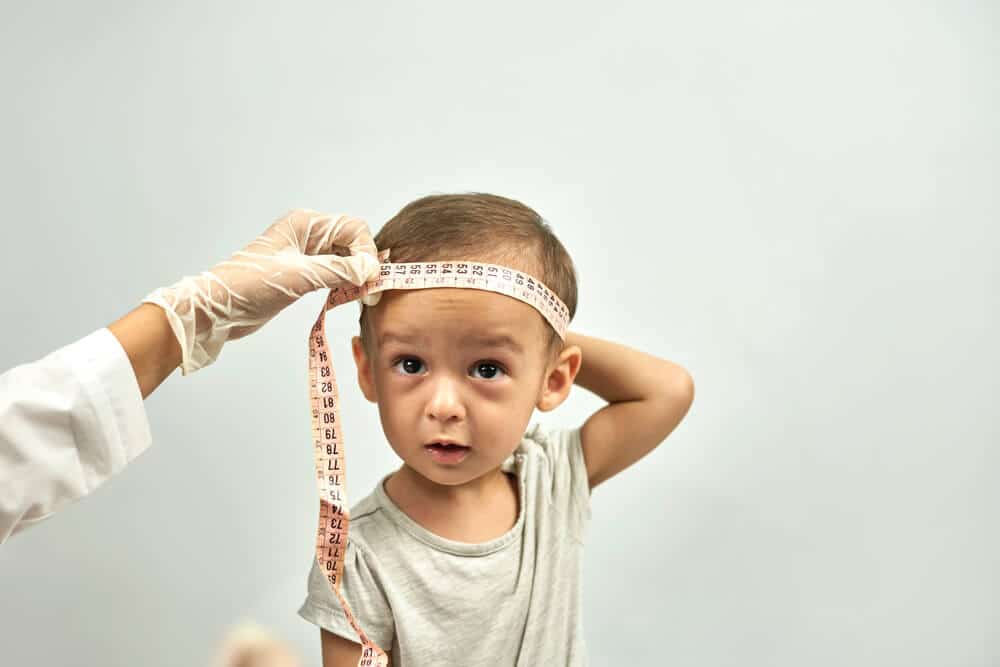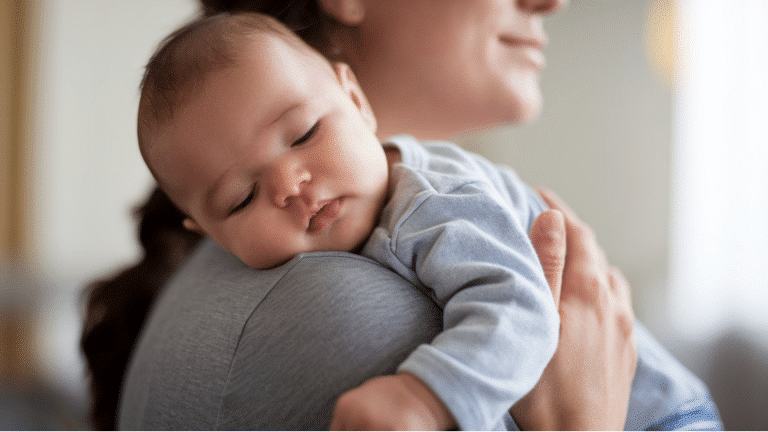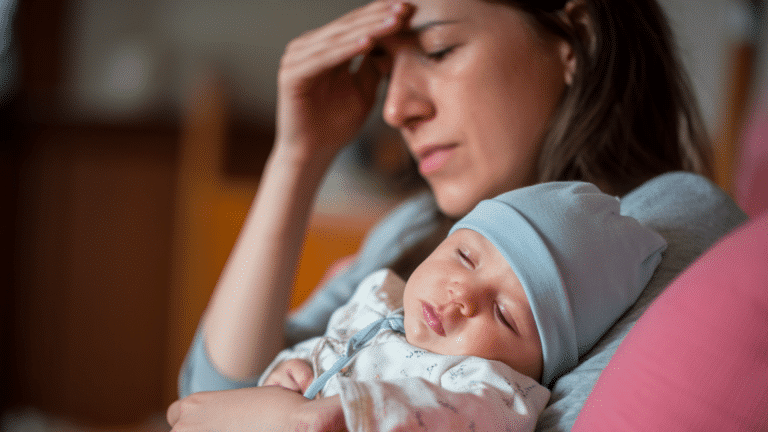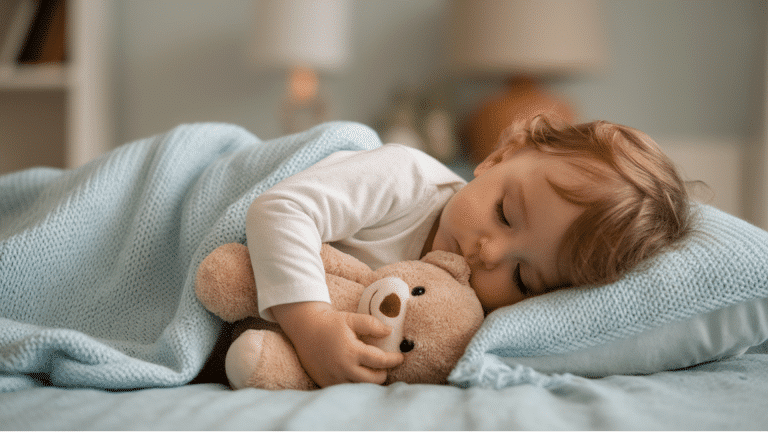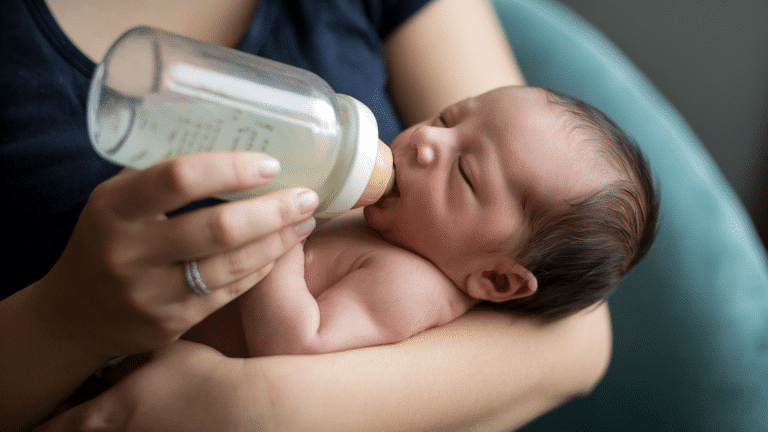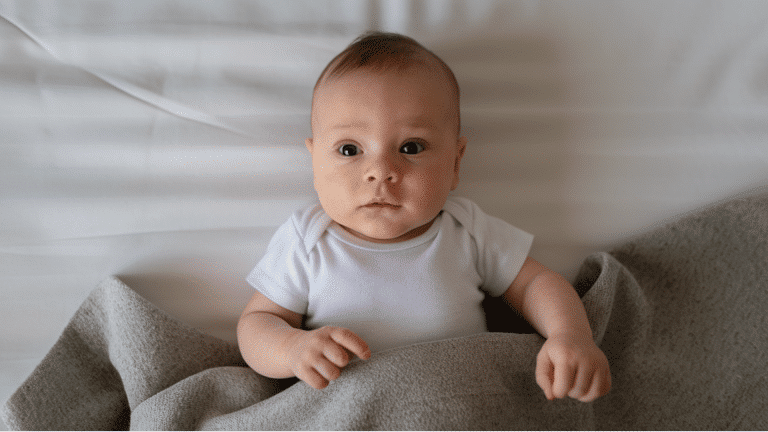Are you wondering whether your baby can sleep on his/her stomach or when can they start?
One of the most debated topics among new parents is the sleeping position of their precious kid, and you are not alone in seeking these clarifications.
While it’s crucial to ensure infants’ sleep safety, the question of when it’s okay for babies to sleep on their stomachs often bugs new parents like you.
Many parents like you have heard conflicting advice from well-meaning friends, family, and even some trained healthcare professionals.
This article will delve into the factors that influence babies sleeping on their stomachs.
Let’s get started.
Understanding Safe Sleep Practices
Certain safe sleep practices for infants and toddlers need to be adhered to reduce the risk of sudden infant death syndrome (SIDS).
The American Academy of Pediatrics (AAP) recommends that babies sleep safely on their backs.
It is said that this position helps keep the airways clear, reducing the likelihood of suffocation or inhalation of Carbon Dioxide.
Mattress also plays an important role when it comes to reducing the risk of SIDS. A firm mattress is recommended, and fluffy bedding such as blankets and pillows should be avoided since they can pose suffocation risks.
Moreover, it’s essential to maintain the optimum room temperature to ensure that your baby sleeps deeply and gets all the rest he or she needs.
Usually, the temperature should be a little bit on the warmer side for a comfortable sleep.
Why Sleeping on The Back is Recommended?
As we briefly talked about this, back sleeping is a recommended practice. But why is that the case? Besides keeping the airways clear for proper breathing, resting on the back also decreases the risk of rebreathing the exhaled carbon dioxide.
Moreover, placing babies on their backs to sleep is associated with a substantially lower risk of choking hazards.
So overall, resting on the back is recommended for infants to create a safe sleep environment that promotes the health and well-being of your kid.
When Can Babies Start Sleeping on Their Stomachs?
While we all know that sleeping on the back is recommended for infants, navigating through common baby sleep challenges, such as the 10-month sleep regression, is crucial for parents seeking to ensure safe and comfortable sleep.
According to AAP, you can allow your baby to sleep on their stomach when they can roll over independently without support.
This milestone is usually achieved when your baby turns 4 to 6 months old. Once they can roll over on their own, it ensures that the baby also can protect themselves in case of suffocation.
Monitoring Your Baby’s Development
If you monitor your baby’s development, you can tell whether your baby is growing at a healthier pace. But also, remember that each child is different, and the growth rate can vary slightly.
There are some signs which can tell whether your baby is ready for stomach sleeping or not. For instance, your child is showing increased signs of strength and coordination.
Premature babies or those with developmental issues can reach these milestones a little later than normal kids.
Also, it’s good to consult your pediatrician if you find something unusual or have any doubts regarding your baby’s growth, development, and diet.
Process of Creating a Safe Sleeping Environment
So, finally, your baby has started sleeping on the stomach; ensuring a safe sleep environment is essential. Follow the tips below for creating a safe sleeping environment.
- Using a firm mattress: Choose a firm crib mattress that fits snugly. Soft mattresses can pose a suffocation risk for babies sleeping on their stomachs.
- Remove soft bedding: You should avoid using soft bedding such as blankets, pillows, stuffed animals, etc.
- Comfortable Room temperature: Optimum room temperature is crucial to have deep sleep. Ideally, you can maintain the temperature of the baby’s room, ranging from 68 to 72 degrees Fahrenheit.
- Placing your baby on the back: Even if your baby can sleep comfortably on the stomach, its always a good idea to put your baby on the back to get them in a comfortable position.
Final Thoughts
Regarding babies and sleep, your baby’s safety is paramount.
While sleeping on the back is recommended for newborns and infants to reduce the risk of SIDS, babies can start sleeping on their stomach only when they can roll over independently.
This takes around 4 to 6 months after the baby is born.
Please remember that putting your baby on the back while sleeping is still recommended, as this position is risk-free, comfortable, and stable.
By following the above expert recommendations and staying attentive to your baby’s needs, you can ensure they get the restful sleep they need for healthier growth and development.
Frequently Asked Questions
Is It OK for Babies to Sleep on Their Stomachs?
Babies can sleep on their stomachs once they can roll over independently, typically around 4 to 6 months old. Until then, back sleeping is recommended to reduce the risk of SIDS.
What Should You Do if a Baby Rolls on The Stomach While Sleeping?
If a baby rolls onto their stomach while sleeping, its generally safe once they can do so independently. Its still essential to keep checking up on him/her to ensure everything is alright.
Can a 6-Month-Old Sleep Face Down?
Yes, a 6-month-old can sleep face down if they roll over independently and have reached other developmental milestones.
Always ensure a safe sleep environment and consult a pediatrician with any concerns.
When is Sids No Longer a Risk?
While the risk of SIDS decreases as a baby grows older, it’s still important to practice safe sleep habits until at least the baby is a year old.
By following these recommended guidelines and creating a healthy and secure sleeping environment, you can substantially reduce the risk of SIDS and develop healthy habits for your baby.



